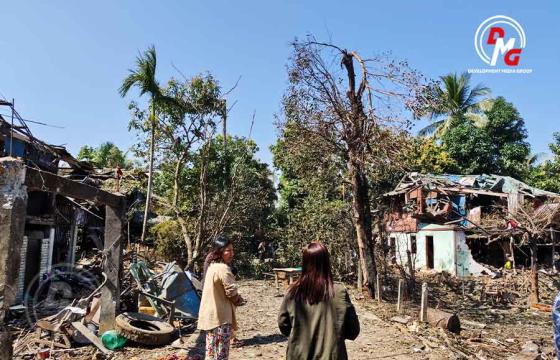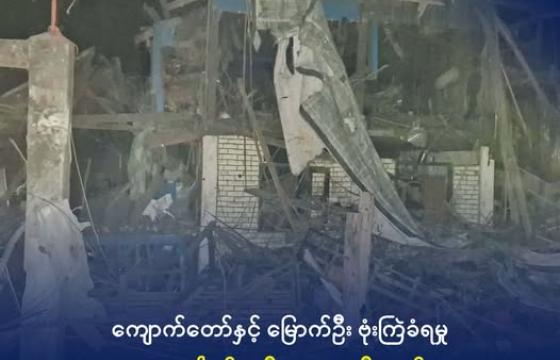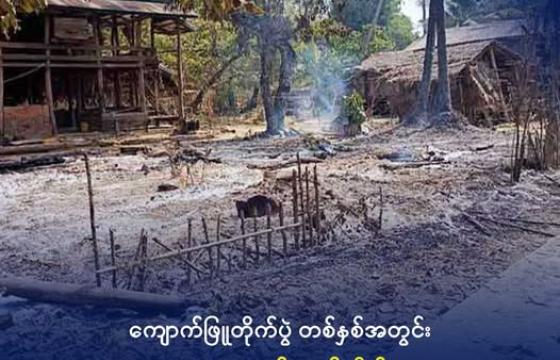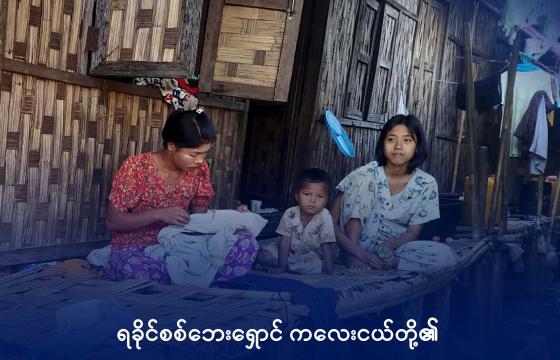Women and children were the hardest hit by the often intense fighting between the Arakan Army and the Tatmadaw (Myanmar military) from late 2018 until the end of 2020.
Artillery shells exploded on houses and villages in Arakan State, killing and injuring dozens of people. When local people flee their homes, women and children are more vulnerable.
Some of the internally displaced people (IDPs) have moved in with close relatives, but most are living in unsafe IDP camps. Currently, more than 100,000 people are still living in displacement camps, despite the increasing number of returnees due to the relative stabilisation of Arakan State over the ceasefire months.
Women living in the IDP camps in Arakan State face a variety of challenges and reports of IDP women being raped have increased in recent months.
In the past two months, rapes have taken place in three IDP camps in Arakan State’s Buthidaung, Mrauk-U and Kyauktaw townships. The victim in one of the cases, in Kyauktaw Township, was a minor regarded as a girl with mental illness.
According to figures compiled by the Legal Clinic Myanmar, there were five reported rapes of minors in Arakan State in 2019, but that figure quadrupled to 20 in 2020. There have been an estimated seven cases of child rape in Arakan State so far this year.
It is even more worrying for women in the IDP camps, who are often living outside of the relative safety and security of their home communities. The threat of rape is a fear for many, on top of day-to-day concerns related to food, shelter and livelihoods. Those insecurities can also overlap and merge; bathing, using the restroom and foraging for food or firewood all come with added risk for IDP women.
Whether do to increased reporting, increased incidence or both, there is a widespread sense that rape is on the rise in Arakan State. And yet there is every reason to assume that the reporting significantly undercounts the actual incidence — especially in times of conflict when the so-called fog of war settles in to obscure all kinds of atrocities.
Victims of rape often stay silent for reasons of perceived and real stigma, and this can embolden perpetrators. Conversely, one hopes that reporting can serve foremost as an accountability mechanism but also as a deterrent. For example, would there ever have been a trial and conviction of three soldiers in the 2020 case of rape in Rathedaung Township’s U Gar village if the victim had not courageously spoken out?
Therefore, women must be encouraged and have the courage to come forward when they have been raped. Conservative society should not look down on victims of rape, and civil society groups and officials need to do their part to help bring justice to the victims.
The question then is what is justice for the victims of rape? What constitutes a fair and just sentence for perpetrators? How can victims of this trauma be healed?
We, Development Media Group (DMG), welcome those discussions and believe that communities and the relevant authorities both have their parts to play in assisting and protecting the victims of rape, and helping to heal their trauma.







